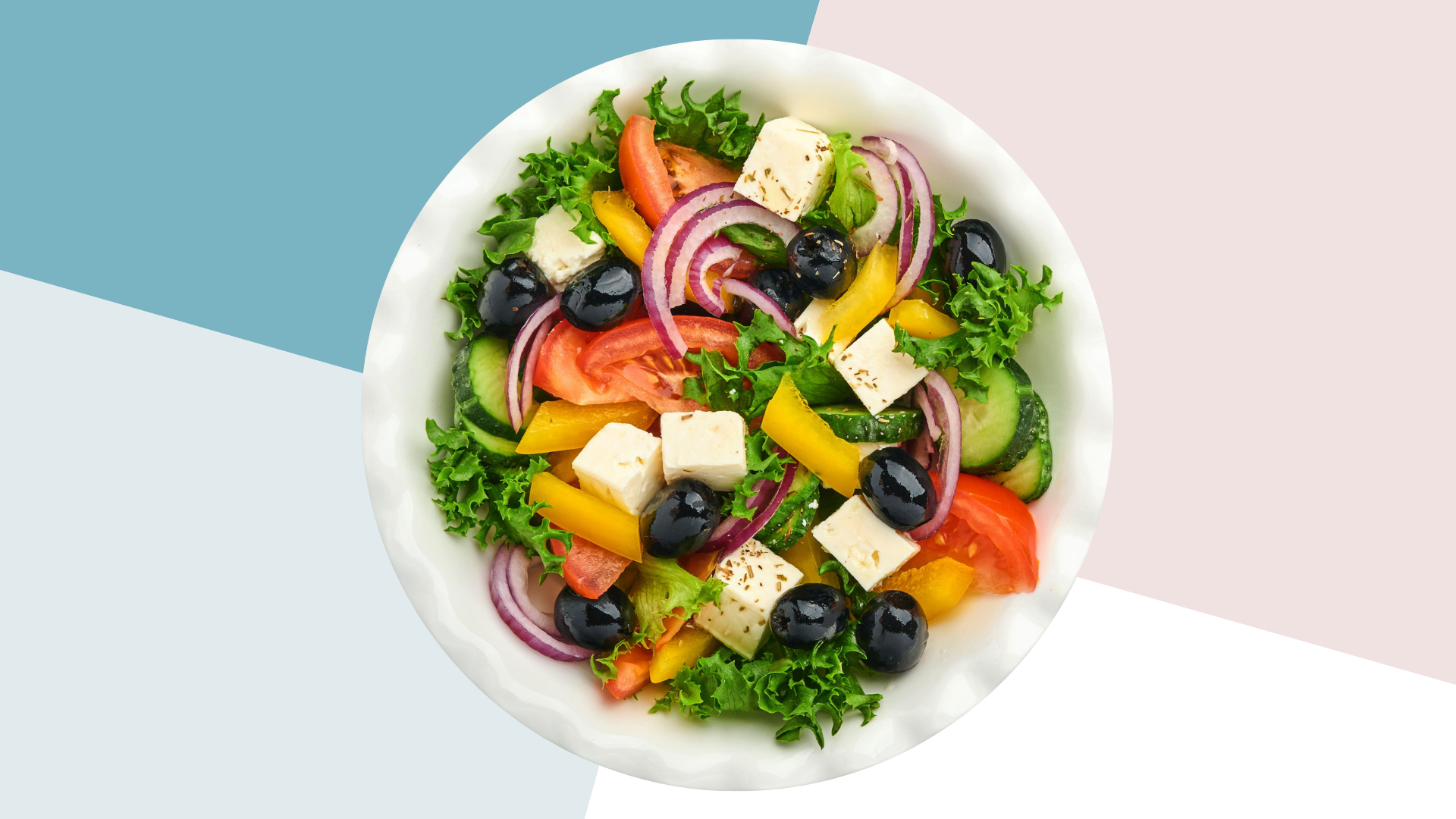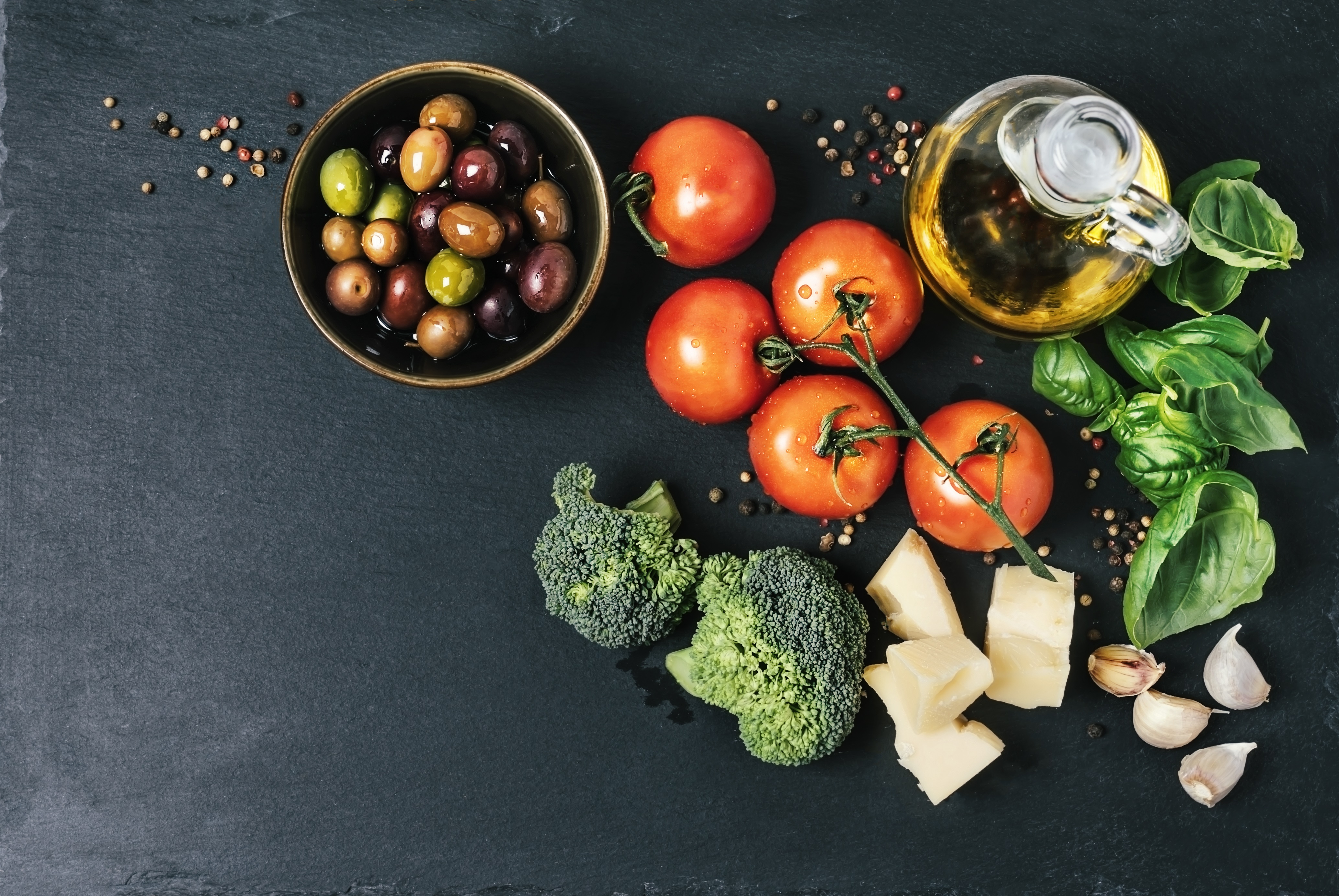What is the Mediterranean diet? Nutritional therapist explains the benefits - and it could improve your mood
Improve your mood! Experts agree that a Mediterranean diet, rich in fresh fruit, veg, fish and nuts is really good for your health and could help you fight off depression too


The Mediterranean diet is a great plan for people who want to make long-term changes to their eating habits.
Over the years, numerous studies have shown people living in the Mediterranean have one of the longest life expectancy rates in the world. Much of this is credited to their diet - among the healthiest diets in the world - which is why more and more people are turning to this healthy way of eating.
Nutritional therapist Anna Mapson explains why: “The Mediterranean diet shows benefits for blood pressure, weight loss, type 2 diabetes, lowering cholesterol and heart disease. The high intake of fibre can feed the gut microbiome which helps with immunity, digestion and a healthy weight.”
What is the Mediterranean diet?
The Mediterranean diet involves following the eating habits of people who live in countries including Greece, Italy and Spain. While it does vary slightly by region, it generally involves eating a large amount of fresh fruit and vegetables. A variety of whole grains, which is one of the foods that boost energy, and a moderate amount of fish is also encouraged. As are healthy fats such as olive oil, nuts and seeds.
The Mediterranean 'diet' is more a lifestyle and, once you get the idea, it's easy to follow. While it tends to. be high in macronutrients, including carbohydrates and protein, the main fat is found in the extra virgin olive oil and nuts. Diary and eggs are recommended at a moderate level and red meat is mostly limited.
The relaxed Mediterranean way of life means that people who live there tend to take time over their meals, eating slowly and enjoying them with family and friends. This extends to their attitude towards alcohol too and the Mediterranean diet permits a small amount of red wine, which should be sipped slowly with a meal.

According to the NHS’ Eat Well advice, the Mediterranean diet has been linked with good health, including a healthier heart.
Nutritional therapist Anna Mapson, who runs Goodness Me Nutrition, says: “The fats in the Mediterranean diet are healthy monounsaturated and polyunsaturated, which are associated with a healthy cardiovascular state. The restriction of red meat can also help colon health, as high intakes of red processed meats are associated with cardiovascular disease and colon cancer.”
Parenting advice, hot topics, best buys and family finance tips delivered straight to your inbox.
What are the main foods in a Mediterranean diet?
- Fruits - Strawberries, blueberries, raspberries, dates, figs, apples, oranges, pears, pomegranate, passion fruit, kiwis, avocados, etc
- Vegetables - Peppers, aubergines, courgettes, tomatoes, spinach, garlic, sweet potatoes, potatoes, carrots, beans, broccoli, etc
- Wholegrains - Wholegrain bread, brown rice, buckwheat, quinoa, bulgar wheat, whole oats, etc
- Legumes - Beans, lentils, chickpeas (including hummus)
- Tofu
- Unsalted and unsweetened nuts (eat in moderation) - Cashews, hazelnuts, Brazil nuts, walnuts, pistachios, etc
- Seeds - Pumpkin, chia, sunflower, poppy, sesame, etc
- Extra virgin olive oil and olives
These are the everyday foods people enjoy as part of the Mediterranean diet. Other foods are permitted of course (no food should ever be off-limits), but these are generally eaten less frequently.
Enjoy once or twice a week:
- Fish - Salmon, tuna, cod, haddock, plaice, seabass, white fish, etc
- Shellfish - Prawns, crab, lobster, mussels, oysters, scallops, etc
- Poultry - Chicken, turkey, duck, quail, etc
- Eggs
- Cheese - Feta, brie, cottage cheese, ricotta, etc
- Greek yoghurt
- Whole-wheat pasta or couscous
Usually enjoyed once or twice a month:
- Red meat - Beef, lamb, pork, veal, venison, etc
- Margarine/butter
- Brown sugar
One of the benefits of the Mediterranean diet is that it is something which can be enjoyed by the whole family. So you don’t need to worry about preparing different dishes for everyone.
Nutritional therapist Anna says: “Include lots of colourful healthiest vegetables and fruits high in fibre, such as spinach, peppers, tomatoes and garlic, as well as seafood, fish and poultry. Choose wholegrains such as brown bread and pasta, and a variety of oils, spices, nuts and seeds. Include a moderate amount of dairy, eggs and a small amount of red meat.”
What can I drink on the Mediterranean diet?
- Daily: Still or sparkling water, tea, coffee
- Occasionally: Milk, red wine
- Rarely: Fruit juice, fizzy drinks, cocktails
Foods to avoid on the Mediterranean diet
- Processed meat - Bacon, sausages, ham, salami, chicken nuggets, etc
- Pre-packaged microwave meals
- Refined grains - white bread, white pasta, white rice, etc
- Chips and crisps
- Sweets and chocolate
The Mediterranean diet recommends avoiding processed foods that are high in sugar and salt. One 2019 study found that ultra-processed food can increase the risk of cardiovascular and coronary heart disease.
Nutritional therapist Anna recommends: “Processed high energy density foods such as sausages, chips, crisps, and high sugar foods like chocolate and cakes should be avoided on the Mediterranean diet.”
If you find it difficult to cut red meat or processed food out of your diet, a good idea is to opt for vegetarian meals once or twice a week.
What are the benefits of the Mediterranean diet?
The benefit of the Mediterranean diet is that it encourages following a more natural way of eating with whole foods (while avoiding anything overly processed) - to improve your health overall Firstly, reduce your meat intake and increase the amount of fish you eat. Secondly, use olive oil instead of butter. Thirdly, and most importantly, eat more fresh fruit and vegetables and less processed and sugary food.
In turn, not only will this help you to feel better, it will also be more healthy for your body in the long run. With researchers in one study finding that it can have positive benefits on your long-term health. A 2018 study showed that people who follow a Mediterranean diet have a reduced risk of heart disease. Meanwhile, additional research published in the Circulation journal discovered it lowers the chance of having a stroke.

Mediterranean 7 day food plan
When following the Mediterranean way of eating, look for recipes from countries including Greece, Italy, Spain, Morocco and Turkey, as they all adhere to the principles above. Here is an example of what a 7-day Mediterranean food plan might look like - but this is for inspiration only, we're not suggesting you stick to this rigidly, as we don't know how many calories or nutrients you might need.
Monday/Day 1
- Breakfast - Natural yoghurt with honey, nuts and dried fruit
- Lunch - Bean and pepper salad
- Snack - Hummus with cucumber and carrot sticks
- Dinner - Halibut with oven-roasted tomatoes, basil and tapenade
Tuesday/Day 2
Breakfast - Banana smoothie
Lunch - Lentil fritters with raita
Snack - Mixed berries, such as strawberries, raspberries, blueberries or cherries
Dinner - Vegetarian moussaka
Wednesday/Day 3
Breakfast - Poached egg and smashed avocado on wholemeal toast
Lunch - Greek salad
Snack - Red pepper and celery sticks
Dinner - Black pasta with cherry tomatoes and prawns
Thursday/Day 4
Breakfast - Porridge with blueberries
Lunch - Veggie kebabs
Snack - Crispy kale (baked with salt and pepper)
Dinner - Roasted peppers with spiced beans and goat’s cheese served with brown rice
Friday/Day 5
Breakfast - Grilled mushrooms and tomatoes with a side of wilted spinach
Lunch - Pesto roasted vegetables
Snack - Mixed sunflower and pumpkin seeds
Dinner - Grilled sea bass with Greek dressing
Saturday/Day 6
Breakfast - Scrambled eggs and fresh tomatoes
Lunch - Roast pepper, olive and feta pasta salad (with wholemeal pasta)
Snack - Mixed nuts
Dinner - Cauliflower pizza
Sunday/Day 7
Breakfast - Carrot and orange smoothie
Lunch - Greek-style stuffed chicken and salad
Snack - Whole grain pita bread dipped in olive oil or hummus
Dinner - Italian cabbage and white bean stew
Video of the Week

Emily-Ann Elliott is an experienced online and print journalist, with a focus on health, travel, and parenting. After beginning her career as a health journalist at The Basingstoke Gazette, she worked at a number of regional newspapers before moving to BBC News online. She later worked as a journalist for Comic Relief, covering stories about health and international development, as well as The Independent, The i, The Guardian, and The Telegraph. Following the birth of her son with neonatal meningitis, Emily-Ann has a particular interest in neonatal health and parental support. Emily-Ann has a degree in English literature from the University of Newcastle and has NCTJ and NCE qualifications in newspaper journalism.